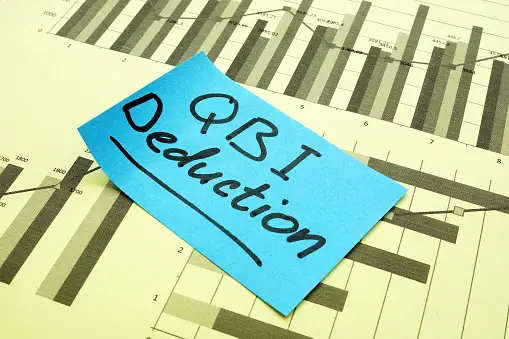In the complex world of personal finance, one of the most distressing situations individuals may find themselves in is being sued for unpaid credit card debt. When faced with a lawsuit over outstanding debt, it’s crucial to understand your rights, options, and strategies for resolution. This article will guide you through the process of how to settle credit card debt when lawsuit has been filed, providing valuable insights and practical advice.
What Happens When Debt Goes Unpaid?
- Legal Action: When you fail to make payments on your credit card debt, your creditor may escalate the matter by pursuing legal action against you.
- Summons and Complaint: The first step in a debt collection lawsuit is typically the serving of a summons and complaint, informing you of the lawsuit and the creditor’s claims against you.
- Court Proceedings: If you fail to respond to the summons, the creditor may obtain a default judgment, allowing them to pursue aggressive measures to collect the debt, such as wage garnishment or bank account seizure.
How Do Debt Collection Lawsuits Work?
Debt collection lawsuits follow a structured legal process:
- Filing the Complaint: The creditor initiates the lawsuit by filing a complaint with the court, outlining the details of the debt and the basis for the lawsuit.
- Serving the Summons: You will receive a summons and a copy of the complaint, providing you with notice of the lawsuit and the opportunity to respond.
- Legal Proceedings: If you contest the lawsuit, the case will proceed to court, where both parties will present their arguments and evidence.
- Judgment: If the court rules in favor of the creditor, a judgment will be entered against you, specifying the amount owed and any additional penalties or fees.
What Are My Options for Debt Relief if the Lawsuit Has Already Been Filed?
If a lawsuit has been filed against you, you still have several options for debt relief:
- Negotiate a Settlement: You can negotiate with the creditor or debt collector to settle the debt for a lower amount than what is owed. This may involve a lump-sum payment or a structured repayment plan.
- Seek Legal Assistance: Consider consulting with a lawyer specializing in debt relief and consumer rights. They can assess your situation, advise you on the best course of action, and represent you in negotiations or court proceedings.
- File for Bankruptcy: If your financial situation is dire and you have no means to repay the debt, filing for bankruptcy may be an option. Bankruptcy can provide relief from overwhelming debt and halt collection efforts, including lawsuits.
- Challenge the Lawsuit: You have the right to challenge the lawsuit if you believe it is unjust or if there are errors in the creditor’s claim. This may involve presenting evidence in court to dispute the debt.
Is Not Paying the Debt an Option?
While ignoring the debt may seem like a tempting option, it can have serious consequences. Failing to respond to a lawsuit can result in a default judgment against you, leading to wage garnishment, bank account levies, or liens on your property.
How Do I Know if I’m Judgment-Proof?
Being judgment-proof means that even if a creditor obtains a judgment against you, they are unable to collect the debt due to your lack of assets or income. You may be judgment-proof if:
- You have no significant assets, such as a home or valuable property.
- Your income is below the threshold for garnishment or is from exempt sources, such as Social Security benefits or certain pensions.
- You reside in a state with strong debtor protection laws that limit creditor remedies.
Tips on Settling Credit Card Debt Before Going to Court
When facing a credit card debt lawsuit, consider the following tips to potentially settle the debt before going to court:
- Communicate with the Creditor: Open lines of communication with the creditor or debt collector. Express your willingness to resolve the debt and explore potential settlement options.
- Offer a Lump Sum Payment: If you have access to funds, offering a lump sum payment to settle the debt for a reduced amount may be attractive to the creditor.
- Seek Professional Help: Enlist the services of a reputable debt settlement company or credit counselor. They can negotiate on your behalf and help you navigate the complexities of debt settlement.
- Document Everything: Keep detailed records of all communication with the creditor or debt collector, including settlement offers and agreements. This documentation can serve as evidence in case of disputes.
- Know Your Rights: Familiarize yourself with your rights under the Fair Debt Collection Practices Act (FDCPA) and other relevant consumer protection laws. Understand what creditors and debt collectors are legally allowed to do when attempting to collect a debt.
Conclusion
How to settle credit card debt when lawsuit has been filed? requires careful consideration and proactive steps. By understanding your options, seeking professional assistance when needed, and advocating for your rights, you can navigate this challenging situation with confidence. Remember, communication and negotiation are key components of reaching a favorable resolution.
FAQs
Can I negotiate with the creditor even after a lawsuit has been filed?
Yes, you can still negotiate with the creditor or debt collector to settle the debt, even after a lawsuit has been filed. However, it’s essential to act promptly and seek legal guidance if necessary.
What are the potential consequences of ignoring a debt collection lawsuit?
Ignoring a debt collection lawsuit can result in a default judgment against you, leading to wage garnishment, bank account levies, or liens on your property. It’s crucial to respond to legal notices and seek appropriate legal advice.
Will settling the debt affect my credit score?
Settling the debt may have an impact on your credit score, as it will likely be reported as “settled” rather than “paid in full.” However, it can still be preferable to having a judgment or bankruptcy on your credit report.
How long do I have to respond to a debt collection lawsuit?
The timeframe for responding to a debt collection lawsuit varies depending on the jurisdiction and court rules. Typically, you will have a few weeks to respond after being served with the summons and complaint.
Can I represent myself in court if a lawsuit has been filed against me?
While you have the right to represent yourself (pro se) in court, it’s advisable to seek legal representation, especially in complex legal matters like debt collection lawsuits. A lawyer can provide valuable expertise and increase your chances of achieving a favorable outcome.




